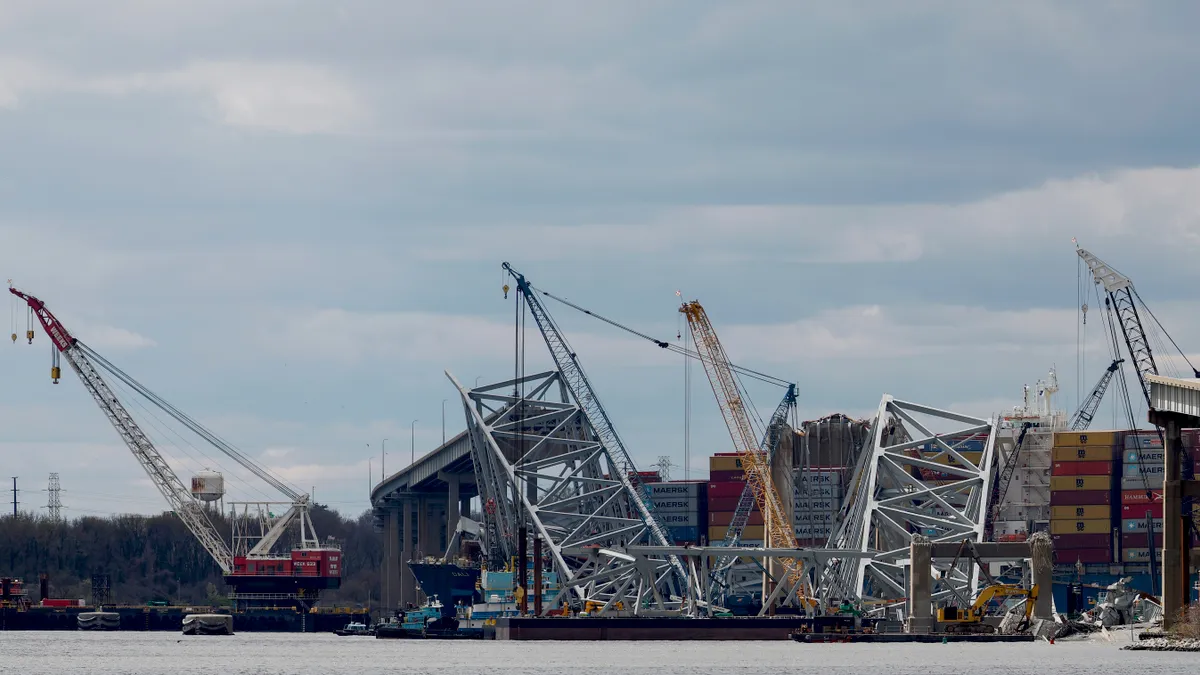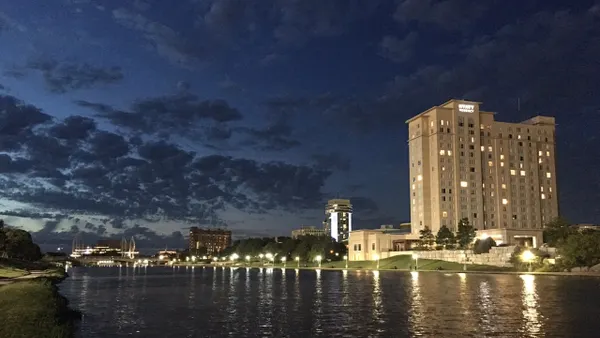A Baltimore bank is offering a unique account to customers who want to participate in relief efforts following March’s shocking Francis Scott Key Bridge collapse.
CFG Bank launched its Maryland Tough Baltimore Strong Money Market Account, which will automatically donate 0.05% of accrued interest to the Maryland Tough Baltimore Strong Key Bridge Fund.
The fund is a nonprofit initiative offering financial support for families of the bridge workers who died or were injured, first responders, out-of-work port workers and their families, and small businesses facing disruption due to the bridge collapse.
CFG’s MTBS money market account comes with 5.25% annual percentage yield, so long as customers maintain a $1,000 minimum daily balance. A CFG MTBS account for commercial enterprises yields 4.37% annually.
The bank will match up to $500,000.
CFG CEO Jack Dwyer’s office, until March 26, had a full view of the bridge. The view after the collapse, he said, was “totally shocking.”
“I never thought that that would ever happen. It was a beautiful bridge. You can still see the approaches to the bridge coming up, and then the whole midsection is just completely gone. It’s really scary,” he said.
Six bridge workers died when a cargo ship collided with the bridge, an important part of I-695 since it was built in 1977. The collapse was a “horrible, horrible, horrible tragedy” for Baltimore as a whole, Dwyer said.
Dwyer said he’s unaware of other account-cum-fundraise products, but added he hopes CFG’s new products inspire other banks to create their own.
“It'd be a great compliment if some people would copy what I'm doing and figure out how to do it to raise additional money,” Dwyer said, noting that although he believes it’s a first-of-its-kind product, it was straightforward for the bank to set up.
Within days of the bank launching the MTBS accounts, CFG customers far beyond the Baltimore area showed interest in the initiative, Dwyer said.
“On the first day we had opened it up, a couple hundred thousand dollars came in from out of state, like Florida,” Dwyer said. “It’s good that it’s not just coming in from Maryland.”













